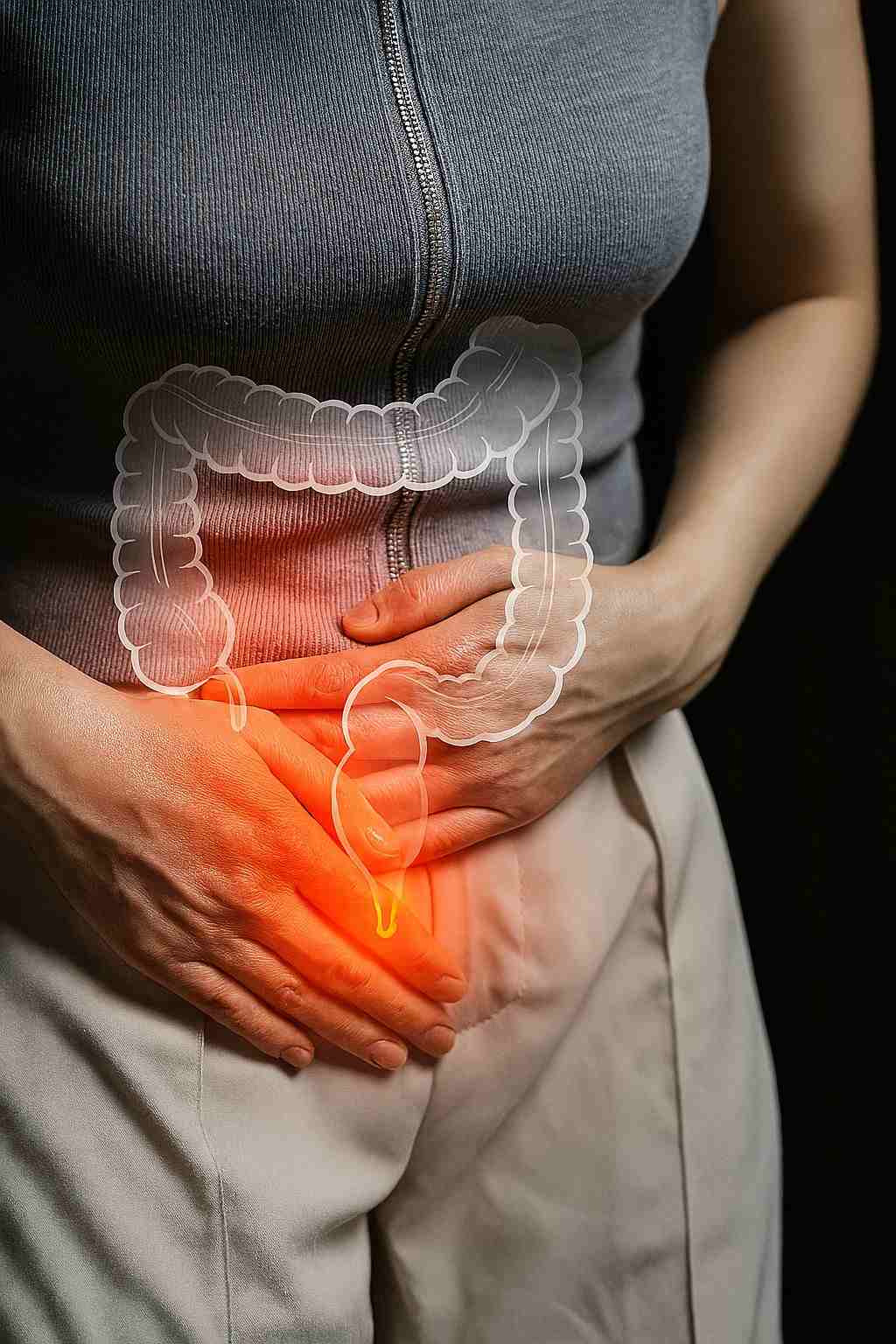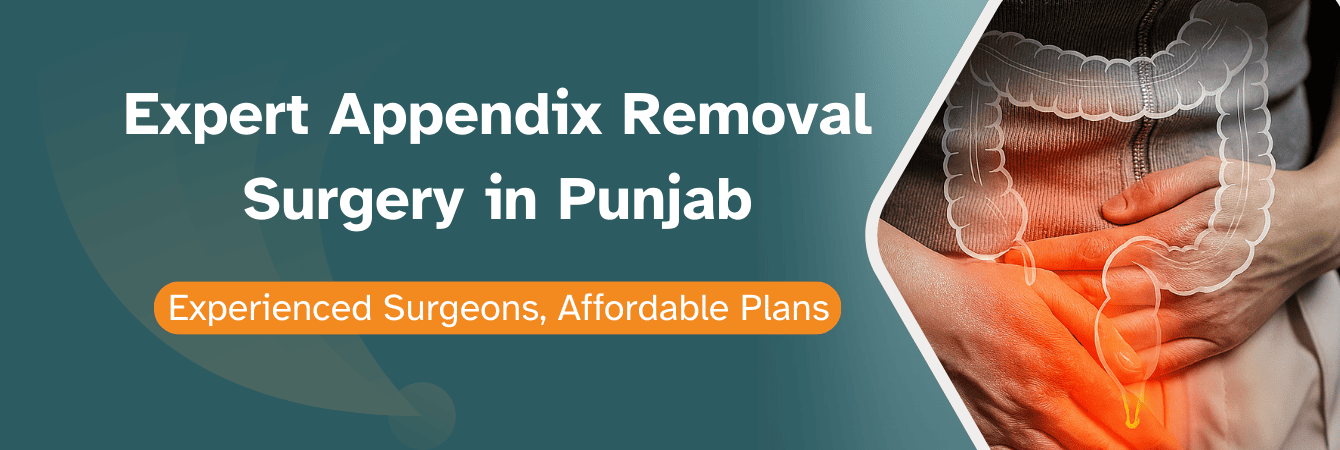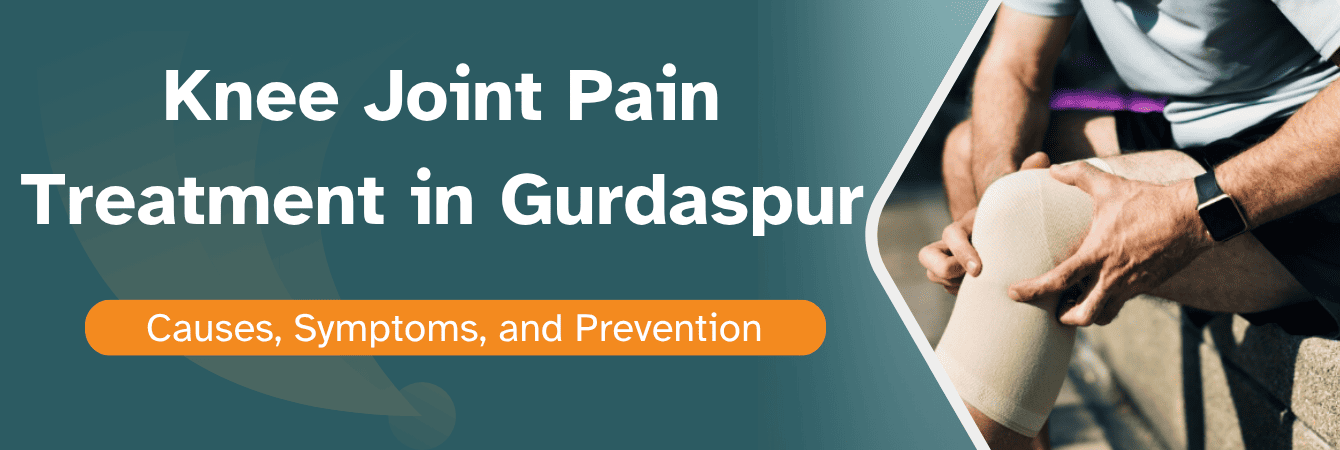Expert Appendix Removal Surgery in Punjab (Appendicitis)
- September 27, 2025
- Abrol Hospital
The appendix might be a tiny, finger-shaped pouch located in the lower right abdomen, but when it becomes inflamed, it can cause a medical emergency known as appendicitis. This small organ, technically called the vermiform appendix, measures only about 3-4 inches long and extends from the cecum, the first part of the large intestine.
What is an Appendectomy?
An appendectomy is the surgical procedure to remove the inflamed appendix. It is the definitive treatment for appendicitis. Once removed, the appendix does not regenerate, and most people live entirely normally without it. Because leaving a diseased appendix risks rupture and infection, this surgery is almost always recommended.
Appendix pain typically starts near the belly button and shifts to the lower right side of the abdomen. It’s often sharp and increases with movement. Other signs include:
Types of Appendix Removal Surgery
Open Appendectomy
This older, traditional method involves one incision (often 2–4 inches) in the lower right portion of the abdomen. The surgeon reaches the appendix directly, removes it, cleans the area (especially if rupture or infection is present), and closes the layers of tissue. Open surgery may be favored in complicated cases—e.g. ruptured appendix, heavy infection, or when there are adhesions from previous surgeries.
Laparoscopic Appendectomy
In this minimally invasive approach, the surgeon makes two or three small “keyhole” incisions. A laparoscope (a thin tube with a camera) is inserted, which provides a video view of the internal abdomen. Specialized instruments are then used to remove the appendix. The incisions are closed with small sutures or surgical glue. Laparoscopy is often preferred because it leads to less pain, smaller scars, quicker recovery, and lower risk of wound infection.
Benefits of Laparoscopic Surgery
Laparoscopic surgery offers multiple advantages: smaller wounds that heal faster and leave minimal scarring; reduced post‑operative pain; shorter hospital stays; quicker return to daily life; and lower chances of wound infection or hernia formation. Especially if done early (before rupture), laparoscopy often is safer and more comfortable for patients.
Step‑by‑Step Process of Appendix Removal - The Surgery Procedure
Under general anesthesia, the surgeon makes the required incisions (small for laparoscopy or larger for open). In laparoscopic surgery, one port carries the camera and others for surgical tools. The appendix is identified, the blood vessels supplying it are tied or sealed, and the appendix is cut away from the cecum (the start of the large intestine). If there is infection or rupture, the abdominal cavity may be irrigated (washed) to remove contaminants or pus. Finally, the incisions are closed in layers, drains may be placed if needed, and sterile dressings applied.
Recovery After Appendix Surgery
Post‑Surgery Care at Home
Once discharged, rest is essential. Take all prescribed medications (pain relievers, antibiotics). Keep the surgical site clean and dry as advised. Slowly resume light meals—beginning with soft, bland foods. Avoid lifting heavy objects or straining the abdominal area. Walk gently to promote circulation and avoid forming clots, but do so gradually.
How Long is the Recovery Period?
Recovery time depends on surgical method and individual health. For laparoscopic appendectomy, many patients feel well within 1 to 2 weeks. For open surgery, full recovery often takes 2 to 4 weeks—or longer if complications occurred. Healing pace depends on age, nutrition, general health, and adherence to postoperative instructions.
Why Choose Abrol Hospital for Appendix Removal Surgery in Punjab
Expert Surgeons and Advanced Equipment
At Abrol Hospital, we pride ourselves on having skilled surgical doctor’s teams proficient in both laparoscopic and open appendectomy techniques. Our operating theatres are equipped with the latest laparoscopy instruments, high-definition cameras, and sterile environments. This enables precision, safety, and efficiency during surgery.
Patient‑Centric Approach
We believe in putting the patient first—guiding you from diagnosis through discharge with empathy. Our staff ensures clear communication about risks, benefits, expectations, and recovery. We coordinate preoperative tests, assist with insurance paperwork, and provide continuous monitoring and care throughout your hospital stay.
Affordable, Transparent Pricing & Insurance Plans
At Abrol Hospital, transparency is key. We offer clear, itemized cost estimates before surgery—covering diagnostics, surgeon fees, operating theatre costs, medicines, and postoperative care. We strive to make surgical care accessible without hidden “surprise” charges. Many patients in Punjab find our package pricing competitive for quality service.
🩺 Take Control of Your Health – Consult Expert Doctor for Pneumonia Treatment Today
If you or your loved one is experiencing signs of appendicitis—don’t wait for it to become an emergency. The sooner you act, the safer the outcome.
At Abrol Hospital, we combine medical expertise, compassionate care, and advanced surgical technology to provide the safest and most effective appendix removal surgery in Punjab. Whether it’s a simple case of appendicitis or a more complex condition requiring urgent care, our experienced team is ready to guide you every step of the way—from diagnosis to full recovery.
• Experienced Surgeons
• Advanced Laparoscopic Surgery
• Affordable & Transparent Packages
• Insurance Support from Start to Finish
• 24/7 Emergency Admission

FAQs (Frequently Asked Questions)
The main reason for appendix issues, especially appendicitis, is a blockage in the appendix. This blockage can be caused by hardened stool, a foreign object, or infection, leading to inflammation. Once blocked, bacteria multiply rapidly, causing swelling and pain—and in severe cases, rupture.
Appendix surgery is done under general anesthesia, so you won’t feel pain during the procedure. After surgery, mild discomfort or soreness is common but is easily managed with medication. Laparoscopic surgery typically leads to faster and less painful recovery.
Yes, you can live a completely normal life without your appendix. The appendix does not serve any essential function in modern human health, so removing it has no long-term health consequences.
After surgery, avoid:
Spicy and oily foods
High-fat or fried items
Alcohol and caffeine
Hard-to-digest foods like red meat
Start with soft, bland foods like porridge, soup, or boiled vegetables, and reintroduce normal foods gradually.



